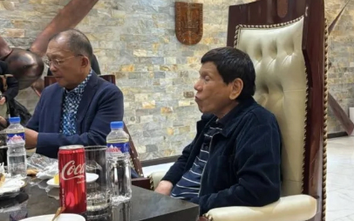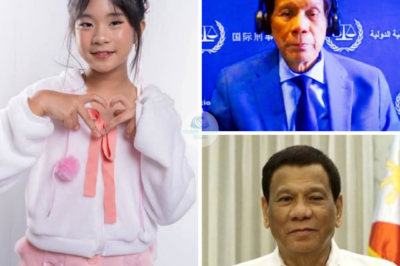Unang Pagharap Ni Duterte Sa ICC Pre-Trial Chamber, Bahagi Ng Due Process Na Ipinagkait Sa War on Drugs Victims
Nagbigay ng pahayag sina Atty. Neri Colmenares, isang abogado ng mga biktima, at Atty. Kristina Conti, isang assistant to counsel sa International Criminal Court (ICC), kaugnay ng unang pagharap ni dating Pangulong Rodrigo Duterte sa Pre-Trial Chamber ng ICC.
Sa isang pahayag na inilabas ng dalawa nitong Biyernes, Marso 14, kanilang binanggit na ang pagkaaresto umano ni Duterte at ang kasalukuyang proseso sa ICC ay isang “incredible illustration” o magandang halimbawa kung paano dinala ang isang tao na pinaghihinalaan ng paggawa ng krimen sa mga awtoridad para sa pagdinig. Ayon sa kanila, ang unang pagharap ni Duterte sa ICC ay isang mahalagang pagkakataon upang tiyakin kung ang taong nasa kustodiya ay siya nga, at kung naiintindihan ni Duterte ang mga paratang na ibinabato sa kanya.
Tinutukoy rin nila na dapat tiyakin na si Duterte ay naipaliwanag sa kanya ang mga krimen na inaakusahan siya, pati na rin ang kanyang mga karapatan sa ilalim ng Rome Statute. Isa sa mga nabanggit nila ay ang karapatan ni Duterte na mag-apply para sa interim release o pansamantalang pagpapalaya habang isinasagawa ang paglilitis.
Gayunpaman, iginiit ng mga abogado na hindi dapat bigyan ng espesyal na trato si Duterte, lalo’t may mga mekanismo na ang detensyon na ginagamit ng ICC na kaya siyang suportahan at tiyakin na hindi ito magiging sanhi ng anumang panganib o makakasagabal sa mga legal na proseso ng korte.
Binigyang-diin din nila na ang pagkakataon ng unang pagharap ni Duterte sa ICC ay hindi lamang isang simpleng hakbang sa proseso, kundi isang mahalagang pagkakataon upang maipakita ang tunay na kahulugan ng due process. Ayon sa mga abogado, ito ay isang pagninilay sa mga biktima ng “war on drugs” na inilunsad ng nakaraang administrasyon, kung saan marami sa kanila ang hindi naranasan ang tamang due process at hustisya.
Isa sa mga layunin ng ICC sa pagdinig na ito ay tiyakin na si Duterte ay nakakakuha ng tamang proseso at hindi nakakaligtaan ang kanyang mga karapatan bilang isang akusado. Ang mga nasabing hakbang ay may layuning siguruhing magiging makatarungan ang paglilitis laban sa kanya at na ang mga biktima ng mga paglabag sa karapatang pantao ay magkakaroon ng tamang pagkakataon na maparusan ang mga may sala.
Ang unang pagharap ni Duterte sa Pre-Trial Chamber ng ICC ay nakatakdang maganap mamayang gabi, alas-9 ng gabi (oras sa Maynila). Ang kaganapang ito ay inaasahan ng mga sumusubaybay sa kaso at isang malaking hakbang sa mga legal na proseso patungkol sa mga akusasyon ng mga krimen laban sa sangkatauhan sa panahon ng kanyang administrasyon, lalo na sa kanyang laban kontra droga na nagresulta sa maraming biktima.
Sa kabuuan, ang mga pahayag nina Atty. Colmenares at Atty. Conti ay naglalayong magbigay ng liwanag sa mga isyu ng hustisya at karapatan ng mga biktima, at binigyang-diin ang kahalagahan ng isang makatarungan at tamang proseso para sa lahat ng akusado, kabilang na si dating Pangulong Duterte, sa harap ng ICC.

News
Honey Love Johnson, Tikom sa Isyu ng Pag-aresto kay Dating Pangulong Duterte, Mas Pinili ang Pagbibigay-Pugay sa OFWs /lo
Honey Love Johnson, Tikom sa Isyu ng Pag-aresto kay Dating Pangulong Duterte, Mas Pinili ang Pagbibigay-Pugay sa OFWs Sa kabila…
Discover the Surprising Benefits of Putting a Bay Leaf in Your Socks
Discover the Surprising Benefits of Putting a Bay Leaf in Your Socks When it comes to natural remedies, bay leaves…
Why You Should Embrace Purslane in Your Garden: 8 Irresistible Reasons
Once dismissed as a common garden weed, purslane, also known as Verdolaga, has undergone a remarkable transformation into a celebrated…
The Hidden Dangers of Oleander: A Beautiful Yet Lethal Plant
Oleander (Nerium oleander) is often admired for its stunning, vibrant flowers and lush, green foliage, making it a popular choice…
12 Amazing Ways Aloe Vera Can Boost Your Health and Well-being
Are you looking for a natural remedy to enhance your well-being? Look no further than aloe vera – the “plant…
The Incredible Health Benefits of Basil Leaves
Basil, a fragrant herb commonly used in various cuisines around the world, is not only a flavorful addition to meals…
End of content
No more pages to load













